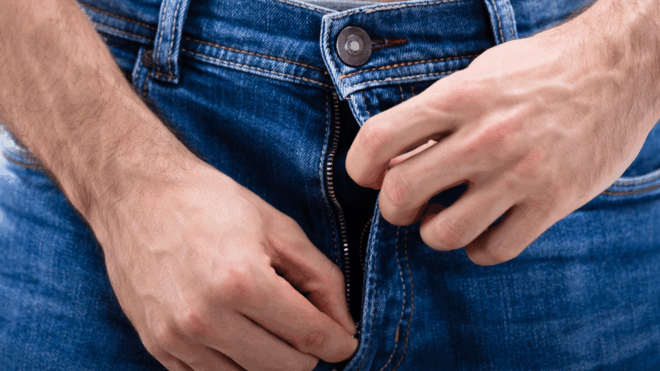Everybody loves something sweet from time to time. Even if you don't have a huge sweet tooth, you probably wouldn't say no to a little treat now and again.
And a little sugar is OK — it really is! If you go overboard, however, you might see some unpleasant side effects — especially when it comes to refined and artificial sugars, like the ones found in candy and processed foods.
In fact, researchers and doctors are saying that sugar, when consumed too much, can actually have the same affect on your body and brain as a drug. Some even want the government to regulate it like one!
If you find yourself always craving something sugary, take a moment to read about what sugar is really doing to your body before you reach for the sweet stuff. In fact, a craving for sugar might mean that your body actually wants something else entirely, and there are many healthier choices out there than candy.
See what happens to your body and your brain when you flood it with sugar, and the next time you feel the need for something sweet, try munching on some fruit instead! You'll get your sweet fix, but in a much healthier way.
What parts of your body does sugar affect? Find out below.
How Is Sugar Hurting My Body? 1. The Mouth
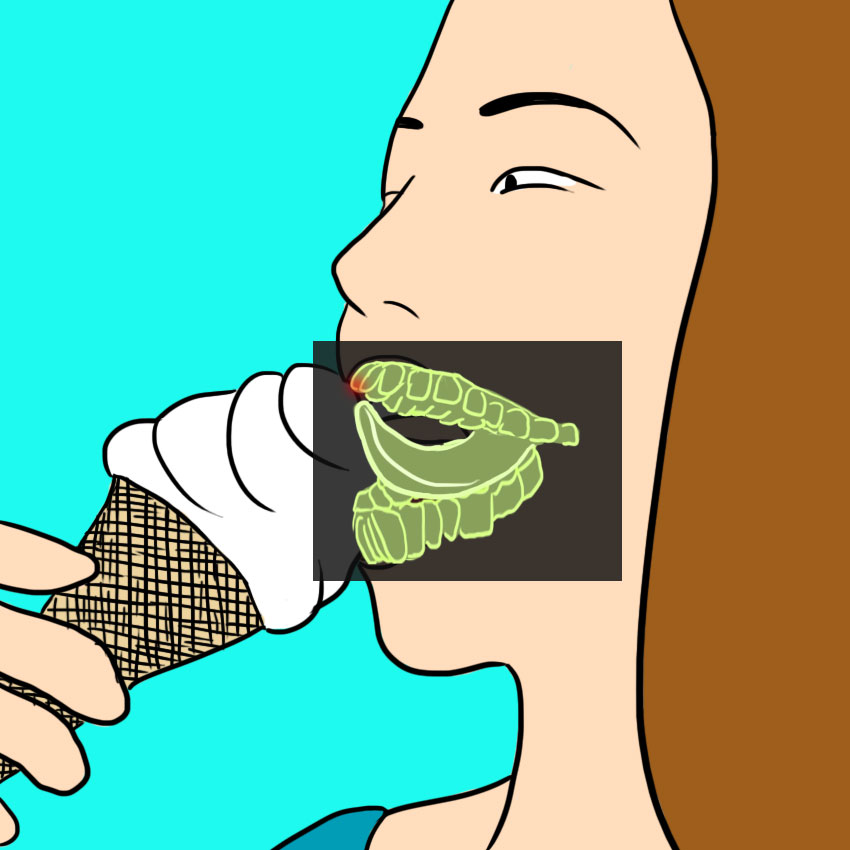
The first place you notice sugar is on your tongue when you taste it. Sugar sets off your tongue's sweetness receptors, and your brain thinks, yum.
But eating a lot of sugar also leads to tooth decay, as you probably already know. Sugar damages tooth enamel, leading to cavities and gum disease.
2. The Cerebral Cortex
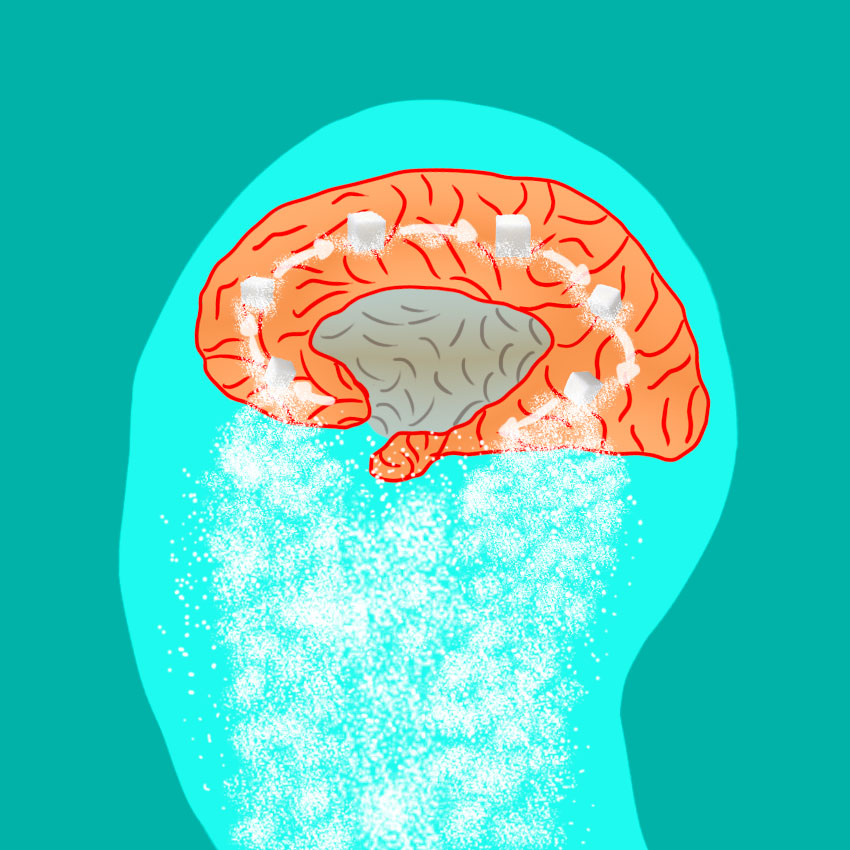
When the sweet receptors in the brain are activated, this happens at the expense of memory and learning. That's why so many parents want to keep their kids' sugar intake to a minimum.
Research suggests that sugar forms free radicals in the brain, which inhibit neurons from communicating with one another, leading to a foggy, zoned-out feeling.
3. Dopamine Levels
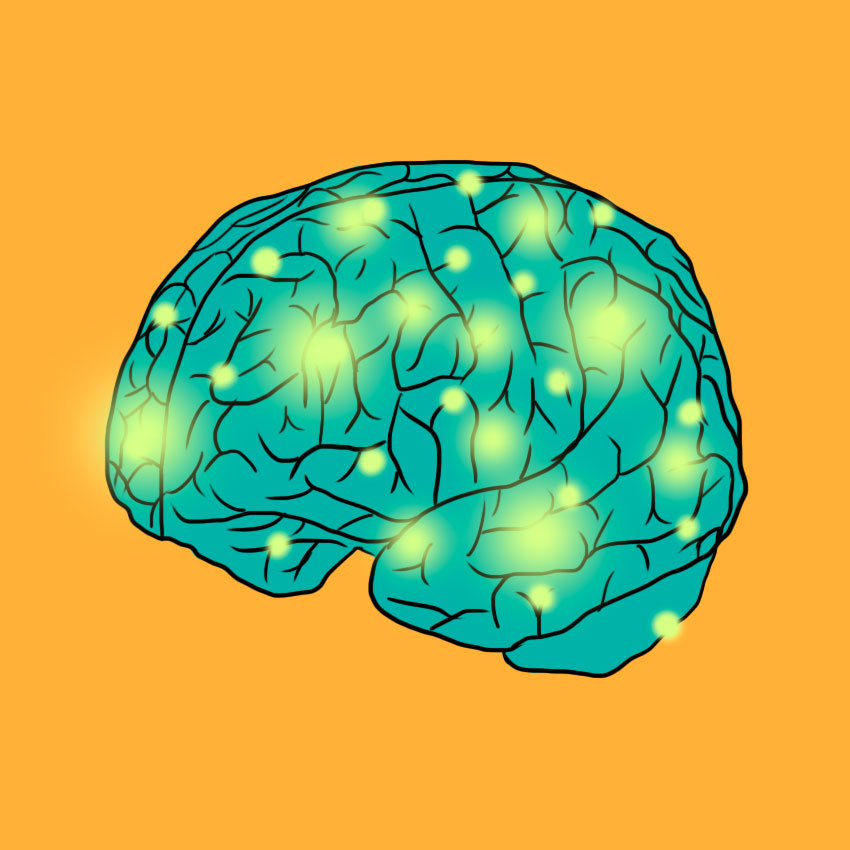
When you eat sugar, your brain releases a lot of dopamine: a chemical that makes you feel good — really good.
But when the sugar wears off, your dopamine levels drop, and you feel that "crash." It doesn't feel so great, and many people seek out more sugar to maintain their dopamine high.
This is exactly like drug use, and why some researchers thing sugar should be regulated as such.
4. The Stomach
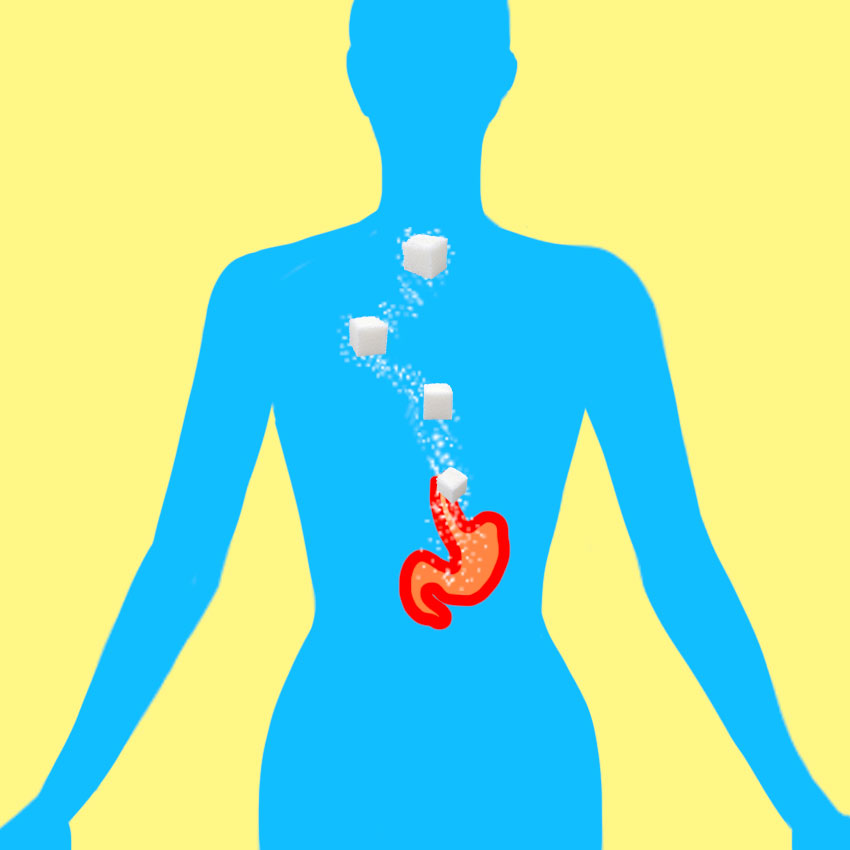
Like all food, sugar lands in your stomach and makes its way through your digestive system.
But it does more than simply pass through. Sugar can upset the balance of your gut flora, the friendly bacteria that help you stay healthy.
Imbalances can weaken you immunity, cause digestive issues, and increase overall inflammation.
5. The Pancreas
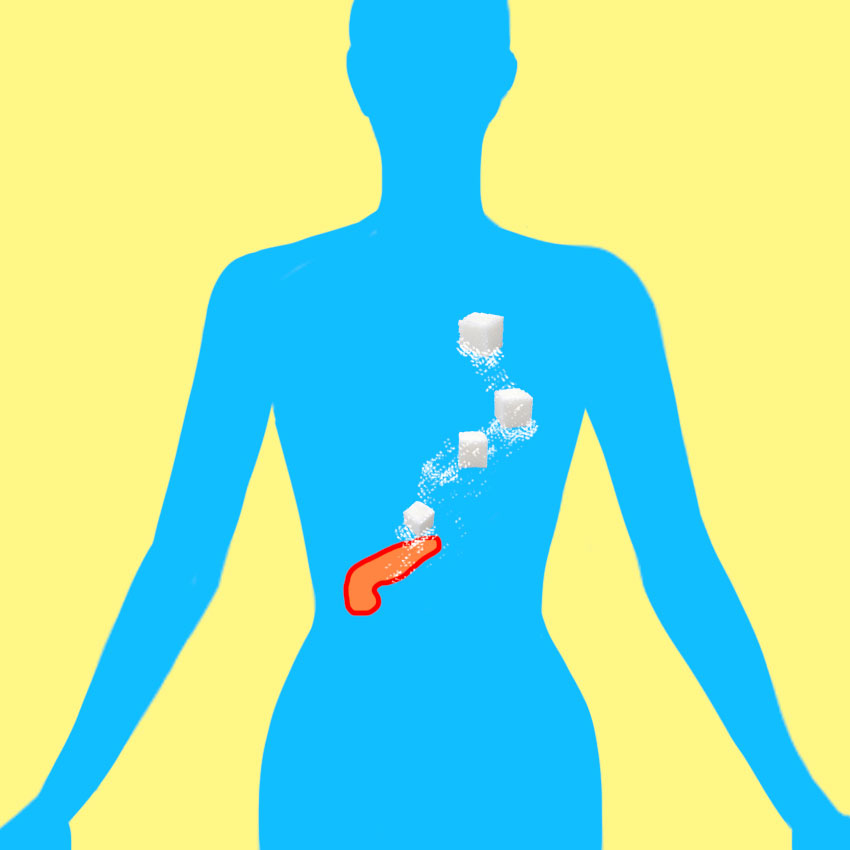
The intake of sugar is picked up by your pancreas.
This organ is responsible for making your body release insulin that, in turn, causes organs like your liver to pull glucose (sugar) from the blood and store it as fat for energy.
6. The Arteries
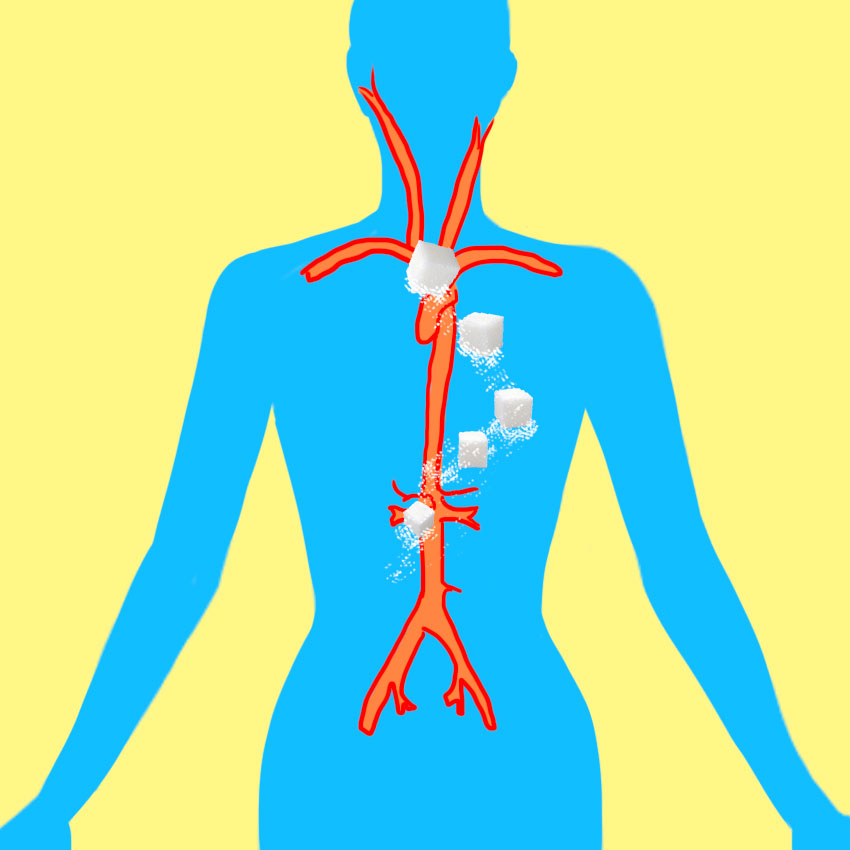
When there's a lot of insulin coursing through your veins, it puts strain on your arteries, as well as on your heart.
Heart disease and stroke are more common in people who eat a high-sugar diet, and are the leading cause of death for those with Type 2 diabetes.
7. The Organs
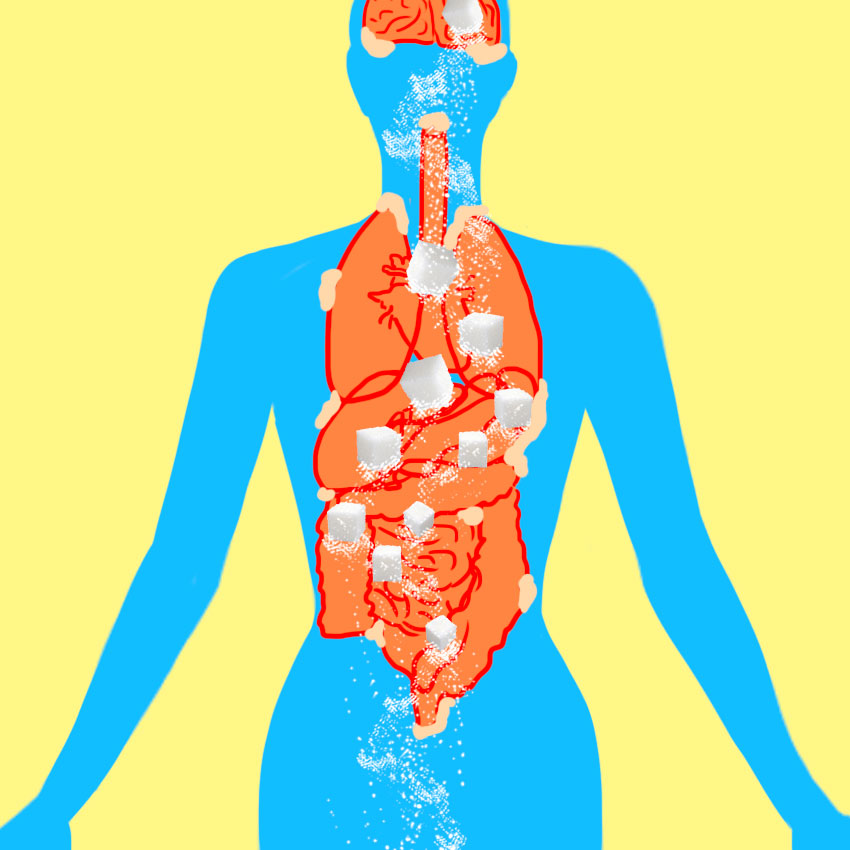
When organs, like your liver, are storing up sugars from the blood as fat, it means that fat is being deposited all over your body, especially around your organs.
Too much of that, and you might develop what's known as nonalcoholic fatty liver disease, which was virtually unheard of prior to 1980, before artificial sweeteners were found everywhere.
8. The Whole Body
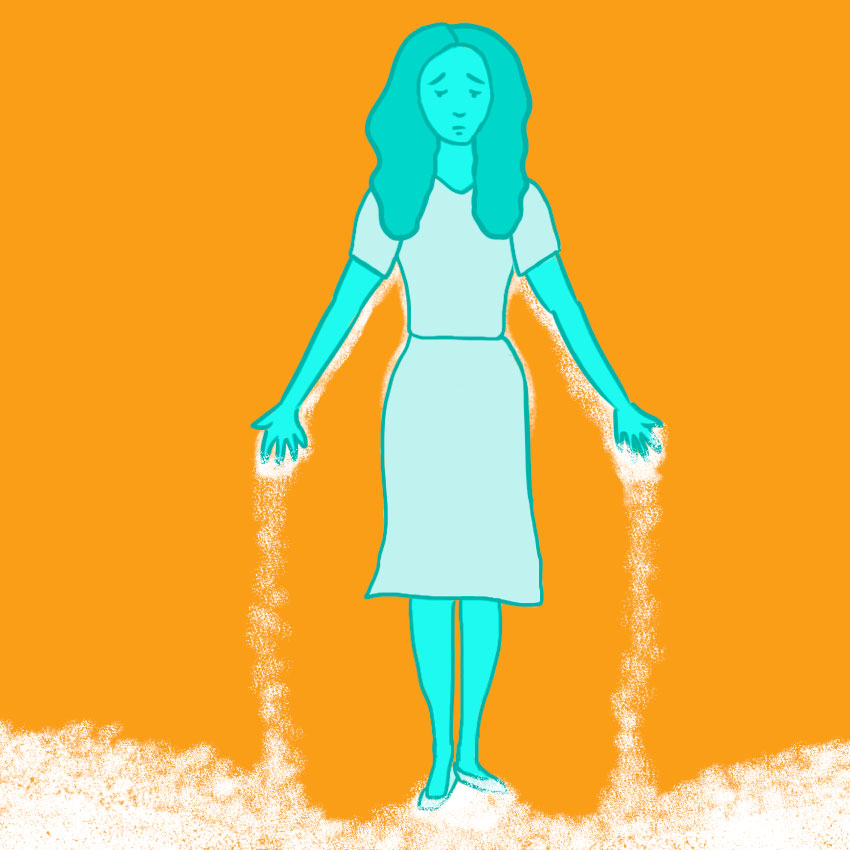
When the sugar runs out, you crash. And you crash hard.
This is when your dopamine levels drop, and with them drops your levels of energy, concentration, and motivation. You just end up craving even more sugar than you did before.
How Can I Add Sweetness Without Using Sugar? 1. Honey
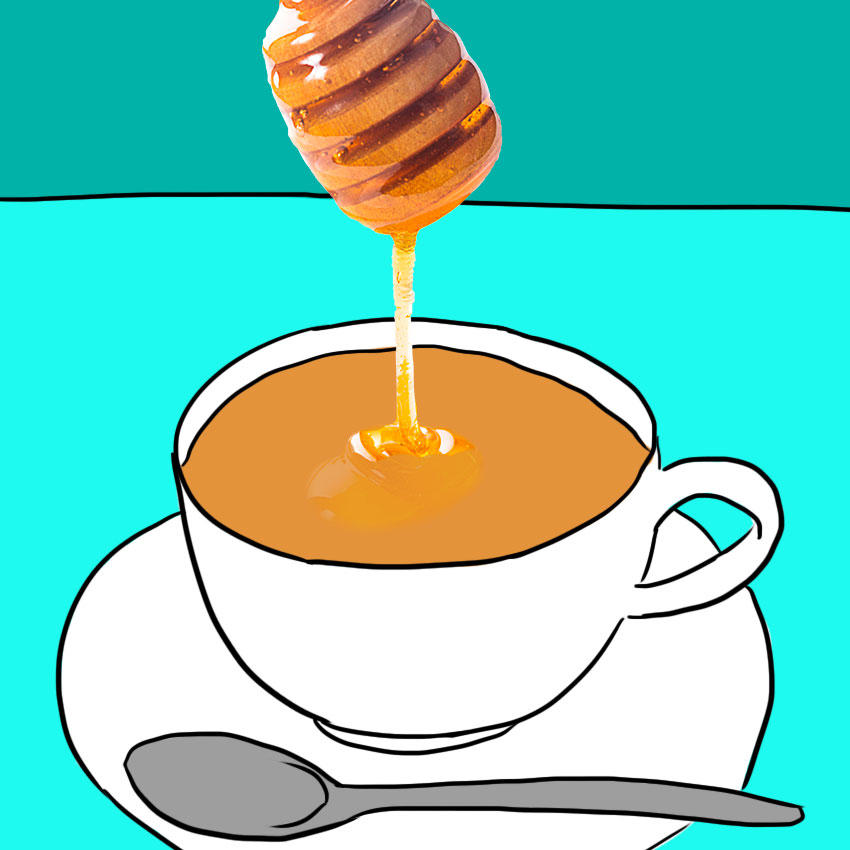
Honey is a great alternative to refined sugar. It's sweet and flavorful, and it's also full of all kinds of health benefits. Plus, by buying local honey, you're helping support your local bee population.
Just don't use honey with infants under 1 year of age.
2. Stevia

Stevia is a natural sugar alternative created from the leaves of the Stevia rebaudiana plant.
It can be used safely by kids and people with diabetes, and has far fewer calories than cane sugar. Stevia usually comes in a liquid form.
3. Agave Nectar

Agave nectar, or syrup, is a sweet syrup from the agave plant, the same plant used to make tequila.
Sweeter than honey, agave is a natural sugar alternative and it's popular because it dissolves easily, even in cold beverages, making it popular with summer drinks.
However, agave has a high fructose level, and so people with diabetes should avoid it.
4. Maple Syrup
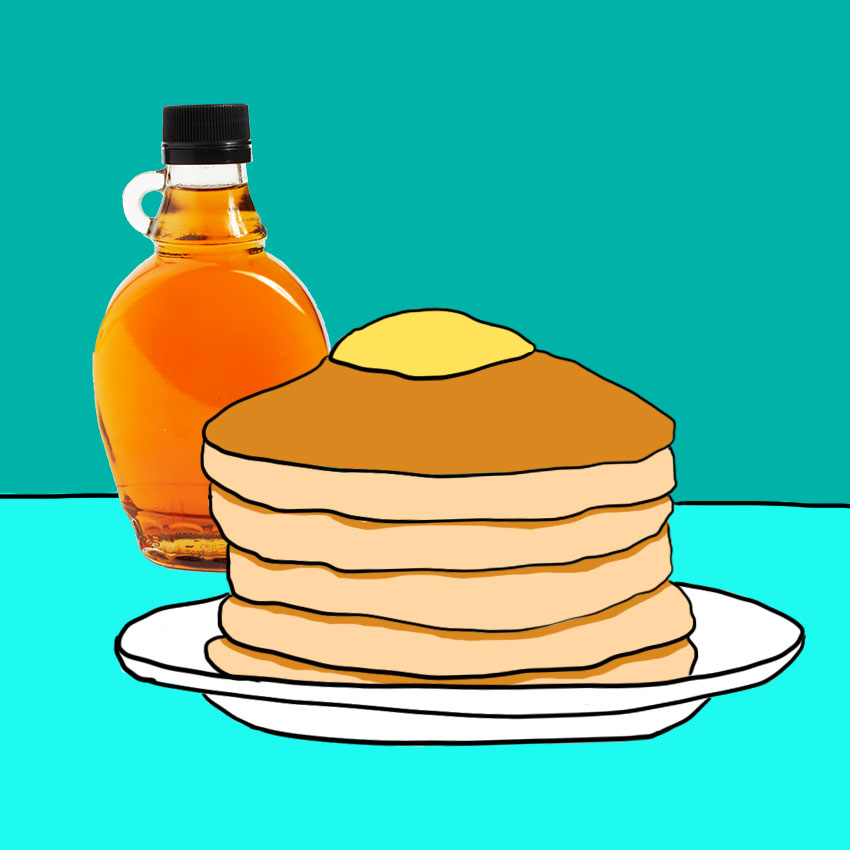
This boiled-down tree sap is a pancake staple, and it's also a great natural sweetener. Mainly made of sucrose, the cause for its distinctive flavor is still something that puzzles scientists.
Do you have a sweet tooth, or do you tend to choose other flavors over sweet?
And do you think sugar should be more strictly regulated, or do you think people should take responsibility for what they eat?
Let us know your thoughts in the comments, and SHARE this information before anyone starts digging into the Halloween candy!


